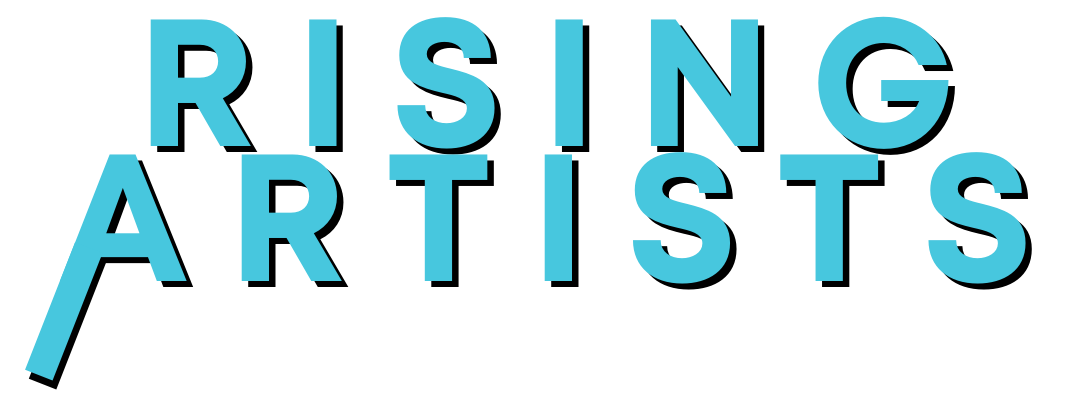Music has always been more than just sound – it’s emotion, connection, and the very fabric of our lives. It’s the soundtrack to our most profound moments, and it shapes who we are. But here’s the thing – when it comes to the music industry, it’s not just about the art. It’s about the bottom line. The reality is that if your music doesn’t generate revenue, it might be overlooked by the industry. But that doesn’t mean your creativity has to be compromised. At Rising Artists, we stand with independent musicians who are driven by passion, not profits.
Balancing Passion with Business: What Really Drives the Industry
At its best, music is pure magic – a universal language that transcends barriers. In today’s industry, it’s essential that your music resonates with people and creates a meaningful connection. However, it’s also important to ensure that your music reaches the audience it’s meant to move. Record labels, producers, and even some artists need to make sure that their music not only touches hearts but also builds the momentum necessary for a successful release. For independent artists who pour their soul into every note, achieving this balance can be both challenging and rewarding.
Where’s the Money?
Let’s be real – the music industry has several key revenue streams, and they’re all essential to sustaining an artist’s career. These include, but aren’t limited to:
- Record Sales: The traditional yet still significant income source.
- Radio Plays: Royalties from songs being spun on the airwaves.
- Film and TV Syncs: Licensing your tracks for the big screen and small screen alike.
- Concerts: Live performances can be a major moneymaker.
- Songwriting: Royalties from penning hits for yourself or other artists.
- Producing: Earnings from crafting tracks for others.
- Merchandising: Selling branded gear to fans.
- Advertising: Music used in commercials.
- Digital Sales: Streaming platforms and digital downloads.
The Key Players: Who’s Got Your Back?
If you’re serious about making it in the music industry, you’ll need a solid team. Here’s who you want in your corner:
- Personal Manager: The quarterback of your team. They guide your career, manage your day-to-day, and help you navigate the industry’s often murky waters. A savvy music marketing manager knows all the right people and will take 15% to 20% of your gross earnings.
- Music Attorney: Contracts are the backbone of the music business, and a sharp music attorney makes sure you don’t get taken for a ride. Expect to shell out $100 to $200 per hour, or a percentage of your earnings if they work on contingency.
- Music Agent: While your manager plots the course, your agent books the gigs. A good agent can open doors to live performances that you might not get into otherwise.
But hey, if you’re more the DIY type, you can always take charge of your career by customizing your strategy based on your goals. Rising Artists offers a range of music services that let you craft a killer music marketing plan or launch a full-scale music marketing campaign – all on your own terms.
The Reality Check: Getting Signed
For those of us who believe in the power of music, it can be tough to accept that success in the industry also requires a business mindset. Thinking of mailing your demo to a record label and waiting for the magic to happen? Think again. Record labels receive thousands of unsolicited demos every day, and most of them go straight into the trash. Why? Because listening to unsolicited music opens labels up to legal risks. Your best bet is to build a buzz on your own – whether that’s through local gigs, social media, or independent releases – before you even think about knocking on a label’s door.
The Record Deal: Behind the Curtain
So, let’s say you get signed. What happens next? You’ll head into the studio, lay down some tracks, and then what? The record label takes over, handling everything from production to distribution to marketing. But before you get too excited, remember this – the label will deduct every expense, from production costs to marketing campaigns, before you see a single cent.
Here’s how the math breaks down in today’s digital music landscape:
- Streaming Revenue: The vast majority of music revenue today comes from streaming platforms like Spotify, Apple Music, and Amazon Music. On average, an artist earns between $0.003 to $0.005 per stream. So, if your song gets one million streams, you’re looking at $3,000 to $5,000 in gross revenue.
- Royalty Rate: Most new artists signed to a label will receive around 15% to 20% of the net revenue from streaming after the label recoups its costs. This means that out of that $3,000 to $5,000, you might see only $450 to $1,000 after deductions.
- Advance: If you’re signed to a major label, you might receive an advance—essentially a loan against your future earnings. This advance has to be recouped before you start receiving royalties, meaning you won’t see any streaming revenue until the advance is paid off.
- Marketing and Promotion Costs: Labels will often spend significant sums on marketing and promotion to ensure your music reaches a broad audience. These costs can run into the tens or hundreds of thousands of dollars, all of which are recoupable from your earnings.
- Distribution and Production Costs: Even in the digital age, there are still costs associated with producing high-quality recordings and distributing them across platforms. These costs, too, will be deducted from your earnings before you see a dime.
When you add up all these costs, it becomes clear why so many artists struggle to see significant earnings from their music alone. This is why having a comprehensive music marketing plan and leveraging multiple revenue streams is crucial to building a sustainable career.
Building a Music Marketing Plan That Works
Navigating the financial side of the industry is just one part of the puzzle. To really make an impact, you’ll need a solid music marketing plan that zeroes in on your audience and builds your brand. This plan should cover everything from social media tactics to a comprehensive music marketing campaign that gets your music into the ears of those who matter. Whether you’re releasing an album independently or with a label, a clear strategy is your key to success.
The Music Industry: Art vs. Business
At Rising Artists, we believe that music should be about more than just profit. It should be about passion, creativity, and staying true to your artistic vision. But let’s face it – the industry can be tough. In some cases, if a release doesn’t perform well, the industry might shift its focus elsewhere. However, for independent artists, the landscape is different. Being independent means having the freedom to create multiple opportunities, learn from experiences, and keep pushing forward, even if your first album doesn’t make waves. That’s why understanding music business 101 – everything from contracts to royalties to marketing – is crucial. It can mean the difference between a short-lived career and a lasting legacy.
For musicians who want to grow their careers while staying true to their art, there are ways to navigate this industry thoughtfully and strategically. If you’re looking to develop your career, boost your visibility, and maintain your integrity, consider exploring the music services offered by Rising Artists. These services can help you build a sustainable career in music, focusing on what truly matters – your passion and your art.
Wrapping It Up: Is It All About the Money?
Yes, the music industry is about money, but that doesn’t mean your music has to be. Understanding the business side is essential, but staying true to your art is what will set you apart. The world doesn’t need more cookie-cutter artists; it needs musicians who are willing to bring something real to the table. So, get out there, create music that matters, and let the money follow.













